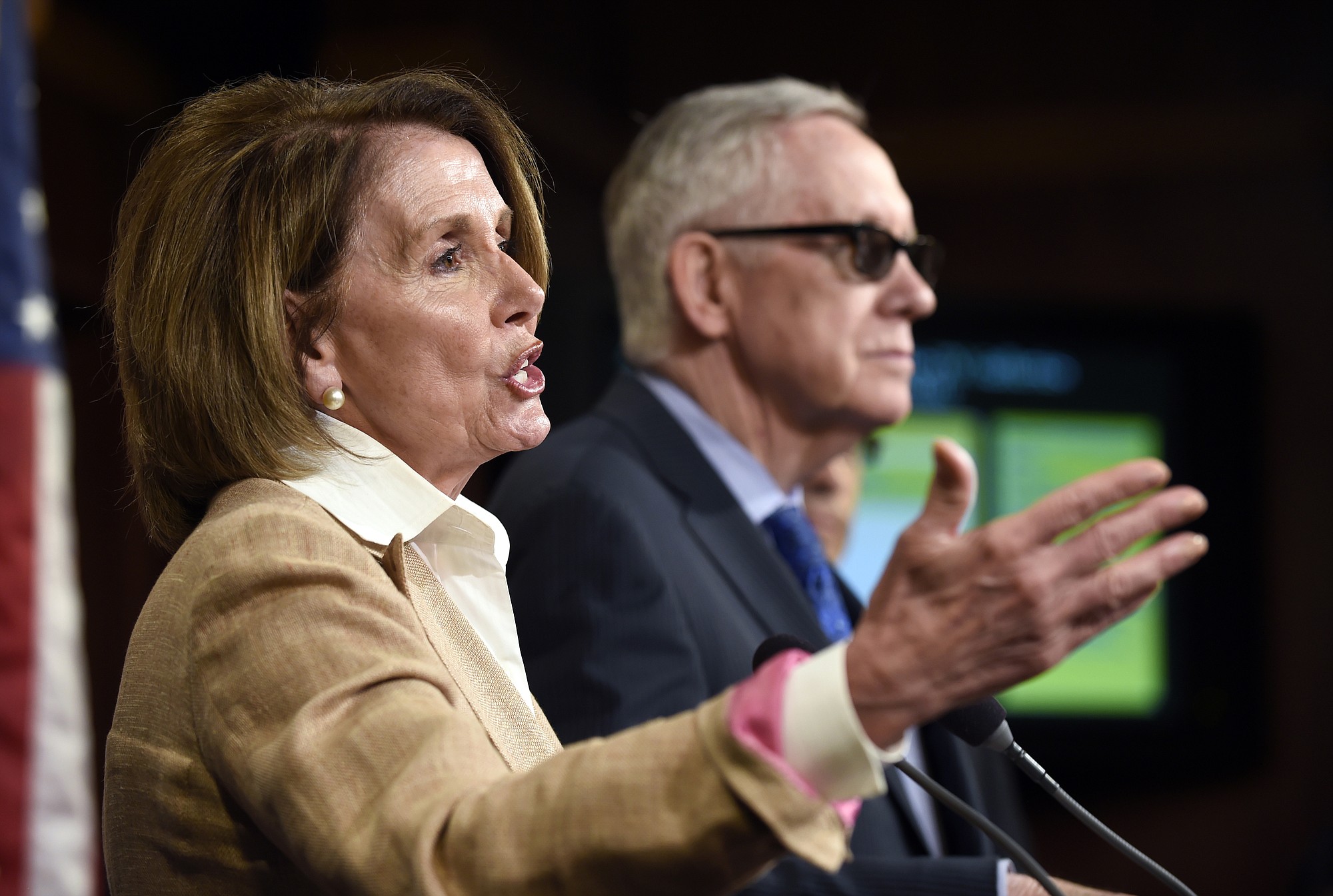WASHINGTON — Members of Congress return from July Fourth fireworks and parades Tuesday facing a daunting summer workload and an impending deadline to fund the government or risk a shutdown in the fall.
The funding fight is shaping up as a major partisan brawl against the backdrop of an intensifying campaign season, with Republicans eager to avoid another Capitol Hill mess as they struggle to hang onto control of Congress and take back the White House next year. Already they are deep into the blame game with Democrats over who would be responsible if a shutdown does happen, with House Speaker John Boehner denouncing Democrats’ “dangerously misguided strategy” and House Democratic leader Nancy Pelosi accusing Boehner and his Republicans of pursuing “manufactured crises.”
The funding deadline does not even arrive until Sept. 30, but lawmakers face more immediate tests, too. Near the top of the list is renewing highway funding before the government loses authority July 31 to send much-needed transportation money to the states right in the middle of summer driving season.
Legislative maneuvering over the highway bill may also create an opening to renew the disputed federal Export-Import Bank, which makes and underwrites loans to help foreign companies buy U.S. products. The bank’s charter expired June 30 due to congressional inaction, a defeat for business and a victory for conservative activists who turned killing the obscure agency into an anti-government cause celebre.
Depending on the progress of the Obama administration’s nuclear negotiations with Iran, lawmakers could face debate on that issue, too. Leading Republicans have made clear that they are prepared to reject any deal the administration comes up with.
Sen. Bob Corker, chairman of the Foreign Relations Committee, said Sunday, “Well, we have gone from dismantling their program to managing proliferation. That’s the biggest concern. That’s already done.”
Corker, R-Tenn., said on CBS’s “Face the Nation” that he has told Secretary of State John Kerry, “Look, you create just as much of a legacy walking away from a bad deal as you do headlong rushing into bad deal.”
On a less partisan note, the Senate opens its legislative session this week with consideration of a major bipartisan education overhaul bill that rewrites the much-maligned No Child Left Behind law by shifting responsibility from the federal government to the states for public school standards.
“We’re seven years overdue” for a rewrite, said Sen. Lamar Alexander, R-Tenn, the bill’s chief sponsor.
The House also is moving forward with its own, Republican-written education overhaul bill, revived after leadership had to pull it earlier this year when conservatives revolted.
Even if both bills pass, though, it’s uncertain whether Congress will be able to agree on a combined version to send to President Barack Obama. Indeed the prospects for any major legislative accomplishments arriving on Obama’s desk in the remainder of the year look slim, though there’s talk of the Senate following the House and moving forward on cybersecurity legislation.
That means that even though Obama was so buoyed when Congress sent him a major trade bill last month that he declared “This is so much fun, we should do it again,” he may not get his wish.
But all issues are likely to be overshadowed by the government funding fight and suspense over how — or if — a shutdown can be avoided.
Democrats are pledging to oppose the annual spending bills to fund government agencies unless Republicans sit down with them to negotiate higher spending levels for domestic agencies. Republicans, who want more spending for the military but not domestic agencies, have so far refused. If there’s no resolution by Sept. 30, the government will enter a partial shutdown.
It’s an outcome all involved say they want to avoid. Yet Democrats who watched Republicans pay a steep political price for forcing a partial shutdown over Obama’s health care law in 2013 — and come within hours of partially shutting down the Department of Homeland Security this year — claim confidence they have the upper hand in forcing negotiations.
“Given that a Democratic president needs to sign anything and you need Democratic votes in both chambers, the writing is on the wall here,” said Pelosi spokesman Drew Hammill.
Republicans insist Democrats are running a risk by opposing spending bills for priorities like troop funding — but are not yet discussing how they will proceed if Democrats don’t back down.
As a result it looks likely current funding levels could be temporarily extended beyond Sept. 30 to allow more time to negotiate a solution.
And that’s not the only consequential deadline this fall. The government’s borrowing limit will also need to be raised sometime before the end of the year, another issue that’s ripe for brinkmanship. Some popular expiring tax breaks will need to be extended, and the Federal Aviation Administration must be renewed. An industry-friendly FAA bill was delayed in the House recently although aides said that was unrelated to the Justice Department’s newly disclosed investigation of airline pricing.
In the meantime, the presence of several presidential candidates in the Senate make action in that chamber unpredictable, Congress will be out for another recess during the month of August — and in September Pope Francis will visit Capitol Hill for a first-ever papal address to Congress.



